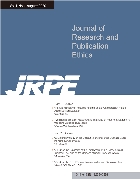- 권한신청
- E-ISSN2733-7146
- KCI Candidate
4권 2호
초록
Abstract
Purpose: There are already hundreds of millions of users of the Metaverse platform, and within a few years, it is expected to develop into a stage for new economic activities with huge industrial ripple effects due to the size of users. The purpose of this study is to derive considerations for the development of metaverse ethical guidelines. Research design, data, and methodology: The concept of the metaverse was examined through various opinions of industry and experts on the metaverse, and literature related to metaverse ethics was analyzed in the Korean journal database. Results: Six issues were identified through the existing research. (1) Establishing a unified definition of metaverse (2) Necessity of establishing ethical principles considering the operator (3) Personal information protection and privacy (4) Expression in a virtual environment (5) Copyright and intellectual property rights of creations (6) Virtual economy and fairness of trade. Conclusions: Metaverse ethics will be developed and implemented in a form and method different from the real world, but basically, continuous discussions on ethical rationality are needed in the process. In addition, since the ethical judgment in the metaverse environment accompanies cultural differences and epochal changes, it is necessary to focus on metaverse ethics cases.
초록
Abstract
Purpose: This study aims to examine the implications of aviation tourism by considering practical and ethical issues in order to achieve academic goals for research ethics. Through this, we intend to derive the direction of research ethics in aviation tourism in the future. Research Design, data and methodology: This study examined ethical issues to examine the current status of research ethics in consideration of the goals of aviation tourism and to analyze and explore the status of research ethics, including various research results and researchers. Results: Aviation tourism is focused on the autonomy of research without strict sanctions. There was a perception that there was no monitoring or control of research ethics, and related scholars did not need to discuss research ethics because the establishment of an academic system was a priority. However, it is now responsible for complying with research ethics limited to integrity and leading research ethics education in domestic aviation tourism. Conclusions: Research ethics problems that may arise in aviation tourism research were explored and issues and tasks were derived. Aviation tourism needs to develop into a more responsible research culture, such as redefining research ethics regulations, changing research culture, and raising researchers' ethical awareness
초록
Abstract
Purpose: EAJBE is actively responding to changes in academic paradigms at domestic and abroad and is carrying out measures to maximize synergy effects between academic fields with the goal of being at the world level. This study aims to present a developmental strategy for EAJBE to grow into an academic journal with international public trust and prepare for future changes. Research design, data and methodology: This paper identifies the current status from the first issue of EAJBE to the present, and analyzes the overall development strategy and direction. Results: EAJBE continues to strengthen long-term investment for internationalization and activities to attract members of excellent scholars. Specifically, first of all, EAJBE aims to operate responsible academic journals, such as guaranteeing the long term of the president of the academic society, the chairman of the editorial board, and the editor-in-chief. EAJBE also focuses on expanding investment for internationalization from a long-term perspective. Finally, EAJBE actively strives for academic exchanges between scholars abroad and at home. Conclusions: EAJBE was indexed in the KCI of the Korea Research Foundation and currently operates a rigorous academic journal to be indexed in the SCOPUS. Already, EAJBE is doing its best to become a successful model for Korean academic journals. EAJBE's path forward will be the first one that no academic society has ever reached as the world's top academic journal.
초록
Abstract
Purpose: This research article aim is to critically examine the ethical principles that govern research publication in social sciences and to identify and analyze the everyday ethical challenges social science researchers face during the publication process. Also, the research explores the factors contributing to ethical violations in social science research publication. Research design, data, and methodology: The present research has conducted comprehensive literature analysis and the authors of this research has figured out total 24 significant prior studies in the current literature dataset for the literature review and finding section. The procedure of data obtaining included the elimination process to screen dissertation papers, conference papers, and internet sources. Results: Previous The sociologies, given their emphasis on the human way of behaving and interactions, demand heightened ethical considerations due to the potential impact of research findings on individuals and society. Therefore, understanding and upholding ethical standards are essential for researchers at all career stages. Conclusions: In order to retain the integrity, legitimacy, and societal influence of research findings, ethical issues are crucial and the necessity for flexible and comprehensive ethical frameworks is highlighted by the rapid evolution of research methodology, digital platforms, and interdisciplinary collaborations, adding new dimensions of ethical complexity.














